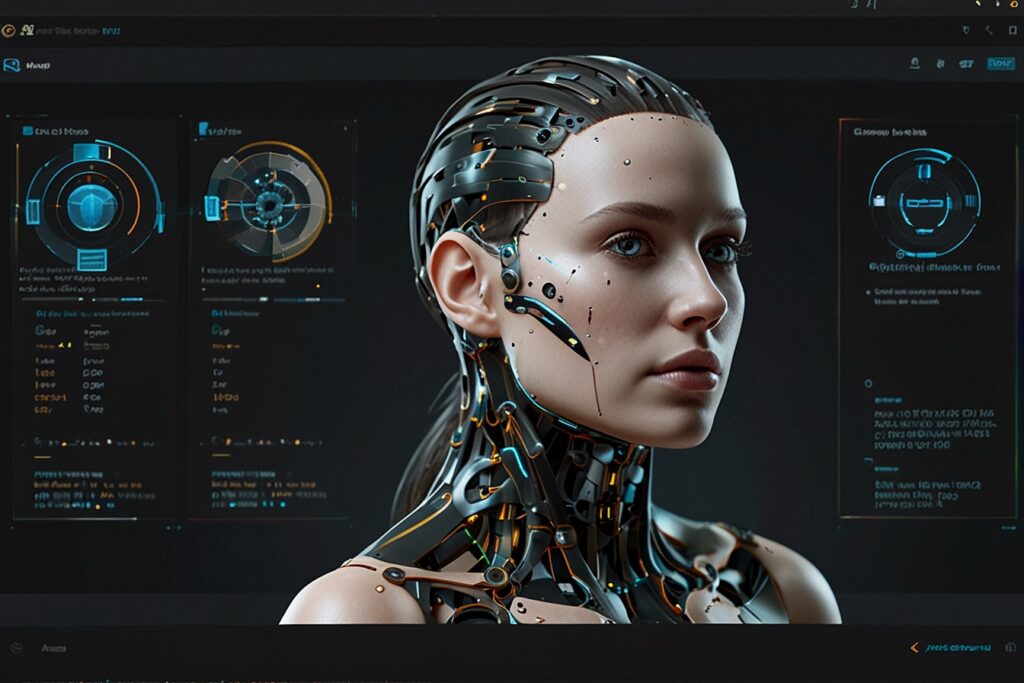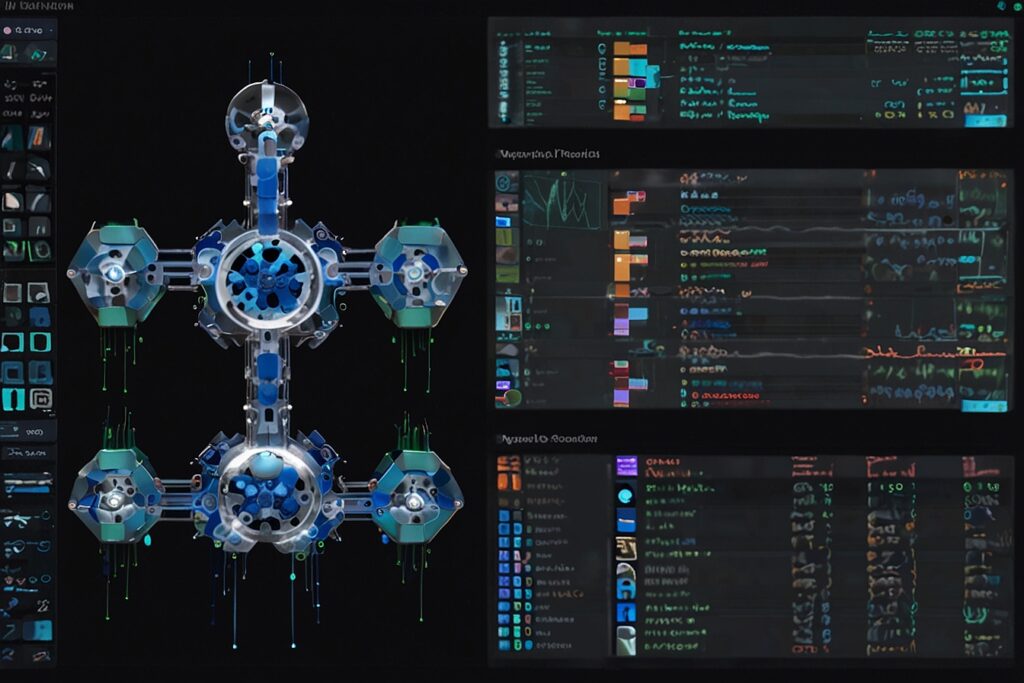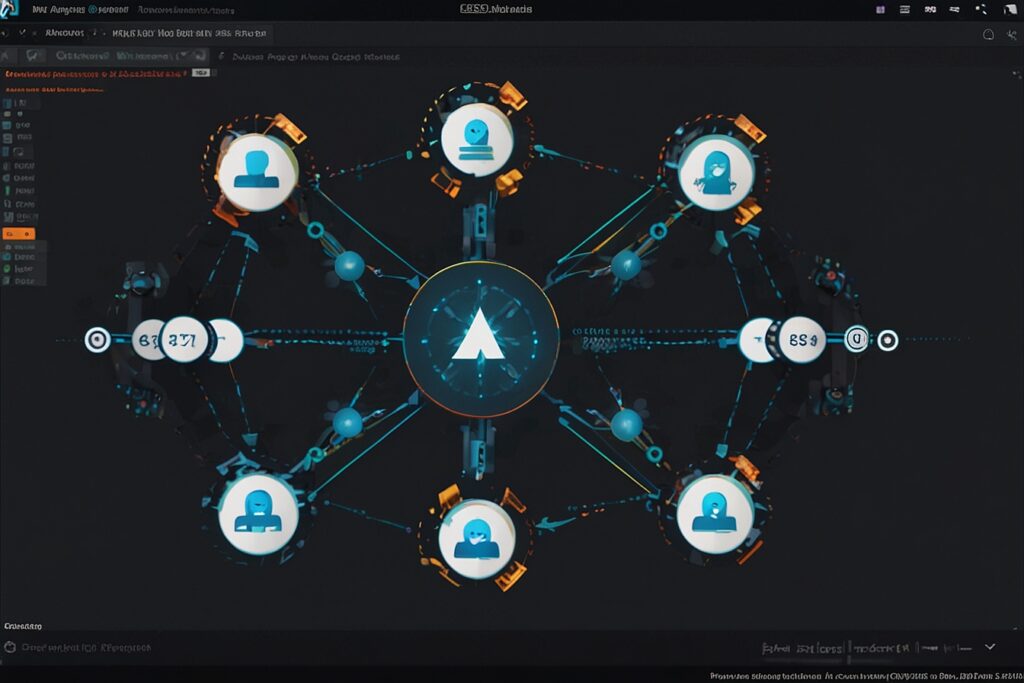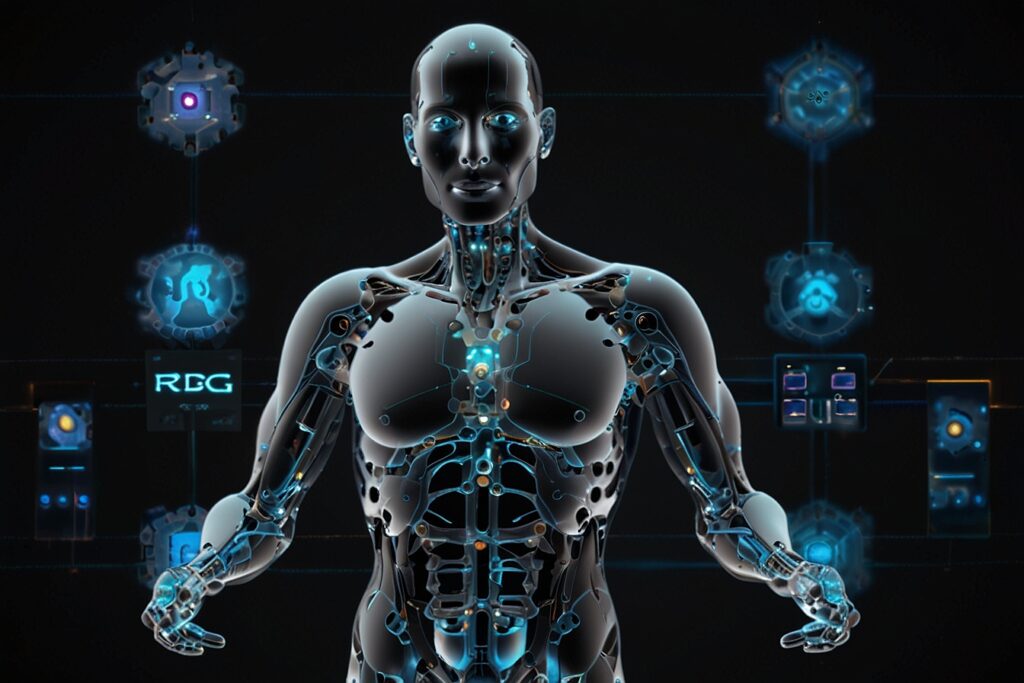The world of Large Language Models (LLMs) is rapidly evolving. These powerful AI systems are capable of impressive feats, but they often struggle with complex tasks that require collaboration and diverse skillsets. Enter AutoGen, a revolutionary framework that unlocks the true potential of LLMs by enabling them to work together in a multi-agent conversation.

Developed by Microsoft Research, AutoGen offers a high-level abstraction for building next-generation LLM applications. It facilitates seamless collaboration between multiple agents, each with its own strengths and functionalities. This paves the way for tackling intricate tasks that go beyond the capabilities of any single LLM.
Table of Contents
ToggleUnveiling the Power of AutoGen
At the heart of AutoGen lies the concept of conversational agents. These agents are designed to be:
Conversable
They can initiate and participate in conversations with other agents, exchanging information and coordinating efforts.
Customizable
Developers can tailor agents to integrate various components:
- LLMs: Leverage the power of large language models for tasks like text generation, translation, and question answering.
- Tools: Integrate software applications and services to expand the capabilities of the agent.
- Humans: Allow human users to seamlessly interact with the agents, providing guidance and expertise.

This modular design empowers developers to build a diverse team of agents, each specializing in a specific area. Through orchestrated conversations, these agents can collectively tackle complex workflows that would be impossible for a single LLM.
Benefits of the Multi-Agent Approach with AutoGen
AutoGen offers a multitude of advantages over traditional LLM applications:
- Enhanced Performance: By combining the strengths of multiple agents, AutoGen applications can achieve superior results compared to single-agent systems.
- Overcoming LLM Weaknesses: LLMs often suffer from limitations like factual inconsistency or bias. AutoGen facilitates collaboration between agents, mitigating these weaknesses and improving overall accuracy.
- Workflow Automation: AutoGen streamlines complex workflows by automating communication and collaboration between agents. This reduces the need for human intervention and simplifies the development process.

- Human Integration: Humans can seamlessly interact with AutoGen agents, providing valuable input and guidance. This human-in-the-loop approach fosters trust and ensures tasks are completed accurately.
- Diverse Conversation Patterns: AutoGen allows developers to define conversation patterns between agents, enabling flexible and adaptable workflows.
Exploring the Use Cases of AutoGen
The potential applications of AutoGen are vast and extend across numerous domains. Let’s delve into a few compelling use cases:
- Building a Multilingual Chatbot: Imagine a customer service chatbot that can converse with users in multiple languages. AutoGen allows for the creation of a team of agents, each specializing in a specific language. During a conversation, the agents can seamlessly communicate with each other, ensuring a smooth and efficient customer experience.
- Content Creation Powerhouse: AutoGen can be used to develop a system that generates different creative text formats, like poems, scripts, or musical pieces. By combining an LLM for text generation with an agent specializing in music theory, the system can produce unique and original compositions.
- Intelligent Research Assistant: Researchers can leverage AutoGen to build an AI assistant that gathers information from diverse sources like scientific papers, online databases, and expert consultations. Different agents can handle specific tasks within the research process, resulting in a comprehensive and well-rounded analysis.
These are just a few scenarios that illustrate the versatility of AutoGen. As the framework evolves, we can expect even more innovative applications to emerge in various fields.
Getting Started with AutoGen
If you’re intrigued by the possibilities of AutoGen, you’re in luck! As an open-source project on GitHub. AutoGen is readily available for developers to explore and experiment with. The framework provides comprehensive documentation and tutorials to facilitate the learning process. Additionally, a growing community of developers is actively contributing to the project, offering support and sharing valuable insights.
The Future of Collaboration: A Multi-Agent Symphony
AutoGen represents a significant leap forward in the realm of AI. By enabling effective collaboration between different LLM agents, humans, and tools, it unlocks new frontiers in problem-solving and task automation. As development continues, AutoGen has the potential to revolutionize various industries, paving the way for a future where AI agents work in harmony to achieve groundbreaking results.

Conclusion
The potential of AutoGen is truly transformative. As we move forward, this framework promises to redefine how we interact with AI, fostering a future of collaboration and innovation. Whether you’re a developer, researcher, or simply curious about the future of AI, AutoGen is an exciting development worth exploring. So, why not embark on this journey and be a part of shaping the future of multi-agent AI?
Ready to join the symphony of multi-agent AI? Dive into the world of AutoGen and explore the possibilities!
FAQs (Frequently Asked Questions)
AutoGen is an open-source framework developed by Microsoft Research that enables the creation of applications powered by multi-agent conversations. These agents, which can be LLMs, tools, or even humans, work together to tackle complex tasks and workflows.
AutoGen offers several advantages, including:
- Enhanced performance: By combining the strengths of multiple agents, AutoGen applications achieve superior results compared to single-agent systems.
- Overcoming LLM limitations: AutoGen mitigates weaknesses like factual inconsistency or bias by facilitating collaboration between agents.
- Workflow automation: AutoGen automates communication and collaboration between agents, streamlining complex workflows.
- Human integration: Humans can interact with AutoGen agents, providing valuable input and ensuring tasks are completed accurately.
AutoGen has numerous applications across various domains, such as building multilingual chatbots, creating content, and developing intelligent research assistants.
AutoGen is available on GitHub as an open-source project. The framework provides comprehensive documentation, tutorials, and a growing community for support and collaboration.

This isn’t just writing; it’s a beautiful exploration of thought, full of insights that feel like small revelations.